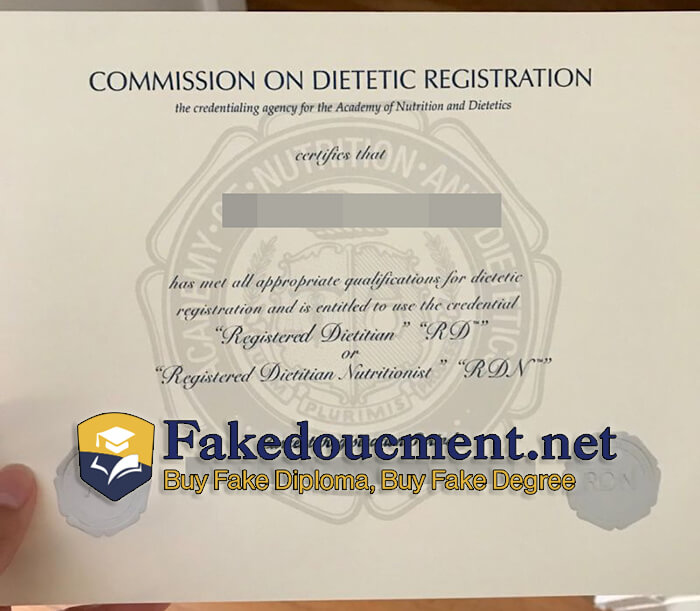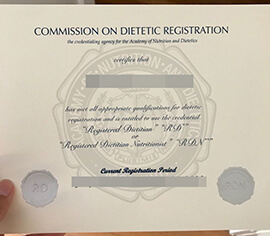
Where to order a realistic Commission on Dietetic Registration certificate online? I would like to buy a realistic Commission on Dietetic Registration certificate online, The best way to buy a realistic Commission on Dietetic Registration certificate online? The Commission on Dietetic Registration (CDR) is the credentialing agency for the Academy of Nutrition and Dietetics. It is responsible for ensuring that registered dietitians (RD) and dietetic technicians, registered (DTR) meet the necessary qualifications and standards to practice in the field of dietetics.
The CDR also oversees the certification and maintenance of the credentials for these professionals. RDs and DTRs must pass the registration examination administered by the CDR to become credentialed.
Registered Dietitian Nutritionists (RDNs) are food and nutrition experts with a minimum of a graduate degree from an accredited dietetics program, who completed a supervised practice requirement, passed a national exam and continue professional development throughout their careers.
There also are specialty credentials in areas of gerontological nutrition (CSG), sports dietetics (CSSD), pediatric nutrition (CSP), renal nutrition (CSR) and oncology nutrition (CSO). Board-certified specialists are credentialed by the Commission on Dietetic Registration, the credentialing agency for the Academy of Nutrition and Dietetics.
According to the 2021 Compensation & Benefits Survey of the Dietetics Profession, the median full-time salary of RDNs is $72,000 per year. As with any profession, salaries and fees vary by region of the country, employment settings, scope of responsibility and supply of RDNs. Salaries increase with experience and many RDNs — particularly those in business, management, education and research — earn incomes above $90,000.
According to the U.S. Bureau of Labor Statistics, employment of dietitians is projected to grow 7% from 2021-2031, as fast as the average for all occupations, because of the increased emphasis on the role of food and nutrition in preventing and treating diseases, a growing and aging population and public interest in nutrition.
Dietetics education programs in colleges and universities are accredited by the Accreditation Council for Education in Nutrition and Dietetics — or ACEND. As an accrediting agency, ACEND makes sure that students preparing for careers as RDNs are getting the education they need to qualify for taking the national RDN exam.
Coordinated programs combine classroom learning with supervised practice experiences within one program. When you graduate from a coordinated program, you satisfy both the graduate degree and supervised practice requirements and are eligible to take the national RDN exam.
This pathway consists of two education programs: First you complete a Didactic Program in Dietetics, which is your classroom coursework. Then you enroll in an accredited Dietetic Internship for supervised practice in real work settings. A master’s degree must be completed prior to entering a DI program or during the DI program, concurrently with supervised practice.
The majority of students who choose this pathway apply for a DI position through a competitive online matching process. However, some DPDs have placement agreements with DIs to ensure their graduates secure dietetic internship positions. If you are considering applying to a Didactic Programs in Dietetics, ask whether the program includes “pre-select matching.”
Students who graduate from both a DPD and a DI and have completed a master’s degree meet both the degree and supervised practice requirements to take the national RDN exam. Most DPDs offer bachelor’s degrees, while others satisfy the minimum graduate degree requirement. DI programs will either offer a master’s degree as part of their program, require interns to complete a master’s degree of their choosing while they complete the DI, or require interns to complete a master’s degree prior to entering the DI program.






